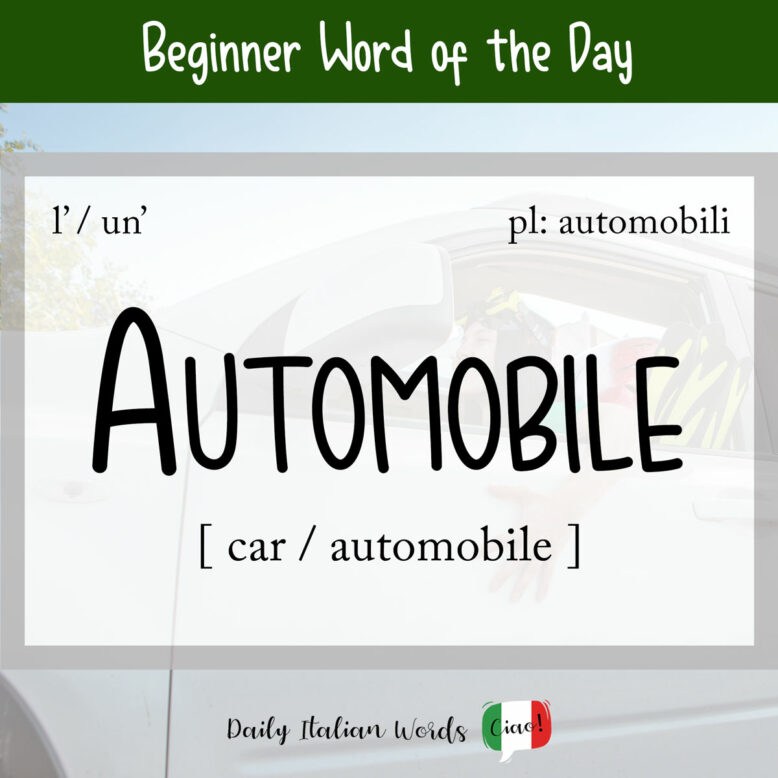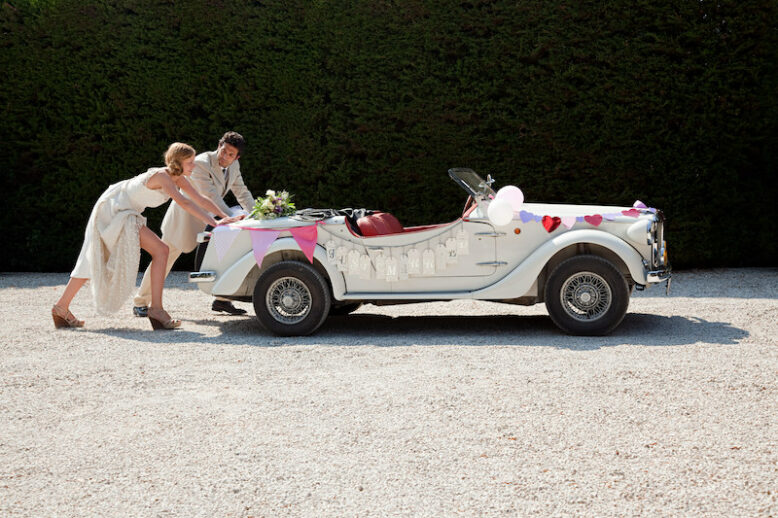Automobile is one of many terms for car in Italian. Like its English cognate, it entered the language via the French automobile, which comprises two words: auto (‘self’) and mobile (‘mobile’).

Being a feminine noun that begins with a vowel, it takes the following definite and indefinite articles:
- l’automobile = the car / automobile
- le automobili = the cars / automobiles
- un’automobile = a car / automobile
- (delle) automobili = (some) cars / automobiles
Because it is a relatively formal word, you will most frequently encounter it in writing, such as magazines, books, contracts, and newspapers, advertising on the television and radio, and at driving school. That isn’t to say you won’t hear it used in everyday conversation, however, especially by the older generation. In fact, my mother-in-law uses it all the time!
A quanto pare, Amazon vende anche automobili in Italia.
Apparently, Amazon also sells cars in Italy.
Automobile can be abbreviated to auto, rendering it slightly less formal, whereas in very formal Italian, you may encounter the term autovettura (also shorten to vettura). But the most widely used informal term for car by far is macchina, which can mean either machine or car depending on the context.
Camilla ha comprato una macchina nuova!
Camilla bought a new car!

Some different types of automobili include:
- automobile da corsa = racing car
- automobile elettrica = electric car
- automobile sportiva = sports car
In old-fashioned Italian, automobile was also used as an adjective (e.g. una macchina automobile).
Heather Broster is a graduate with honours in linguistics from the University of Western Ontario. She is an aspiring polyglot, proficient in English and Italian, as well as Japanese, Welsh, and French to varying degrees of fluency. Originally from Toronto, Heather has resided in various countries, notably Italy for a period of six years. Her primary focus lies in the fields of language acquisition, education, and bilingual instruction.


